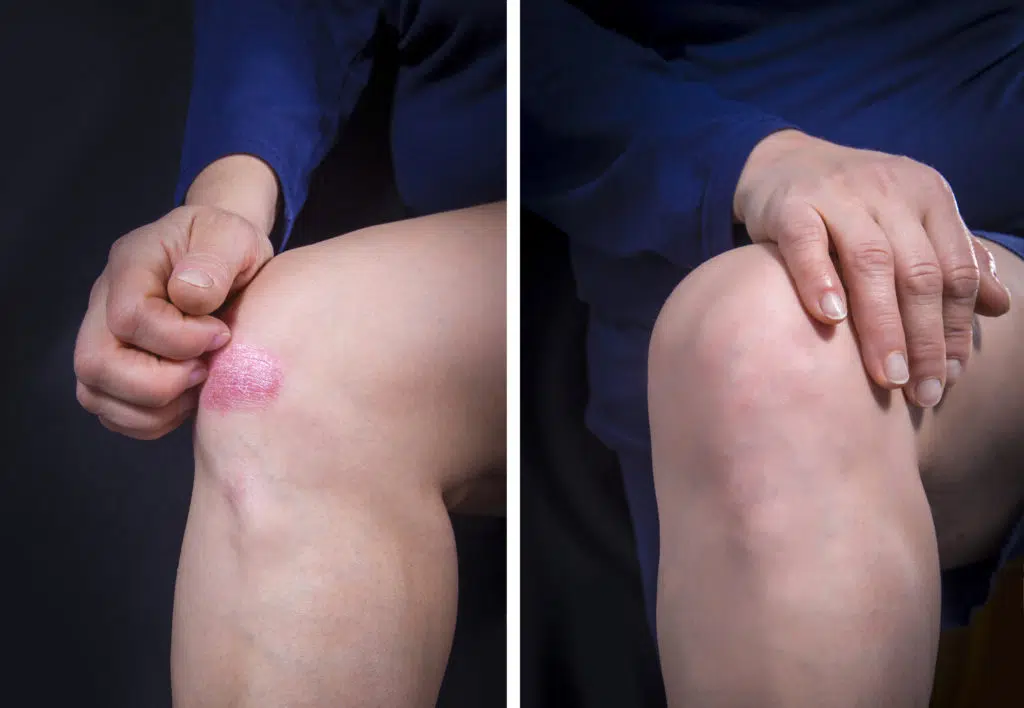Psoriasis is a common, chronic skin condition. The result of a rapid buildup of skin cells, psoriasis causes red, raised, dry and cracked scaly patches, and even blisters, to form on the skin. In some cases, psoriasis affects the fingernails, causing yellowing and small depressions. Psoriasis can be mild, moderate or severe, and, in most cases, causes itching and burning in affected areas or skin.
Psoriasis is the result of an autoimmune disorder, in which skin cells replace themselves every 3 to 4 days, rather than the usual 30, creating a buildup of cells on the skin’s surface, and causing symptoms to appear on the scalp, elbows, knees, hands, feet, and genitals. Although there is no cure, there are several treatments available to effectively relieve symptoms. In the United States, more than seven million men, women, and children have psoriasis.

Psoriasis is caused by an immune-system disorder involving a type of white blood cell called a “T lymphocyte” (T cell). Although T cells usually travel through the body to fight off viruses and other foreign substances, in patients with psoriasis, they attack healthy skin cells. This causes an increased production of healthy skin cells, which then build up on the surface of the skin, causing scaling and patches. The symptoms of psoriasis can worsen as a result of certain triggers, including the following:
Symptoms of psoriasis vary depending on each patient, but often include the following:
For many people who have it, psoriasis is merely a cosmetic issue. In some cases, however, it causes severe pain, especially when associated with arthritis. The symptoms of psoriasis usually come and go; it is a cyclic disorder, with remissions and flare-ups occurring throughout a patient’s life.
Contact dermatitis is caused by an irritating substance. In some cases, the substance is universally irritating, like certain chemicals. In others, the irritation is the result of an allergen, such as latex, perfume, dye, or animal dander, that irritates only individuals with particular sensitivities. Plants like poison ivy and insect bites cause rashes in some individuals.
Psoriatic arthritis is a combination of psoriasis and arthritis. It can cause swelling, pain, and discoloration of the joints, in addition to the skin-related symptoms of psoriasis.


